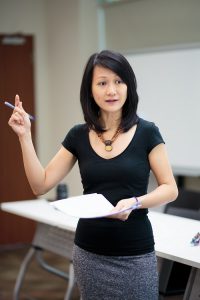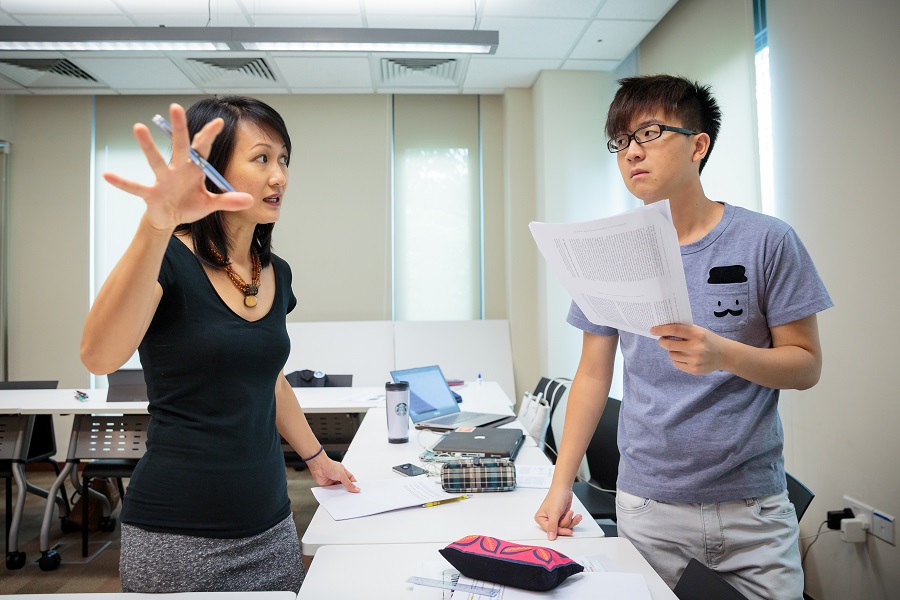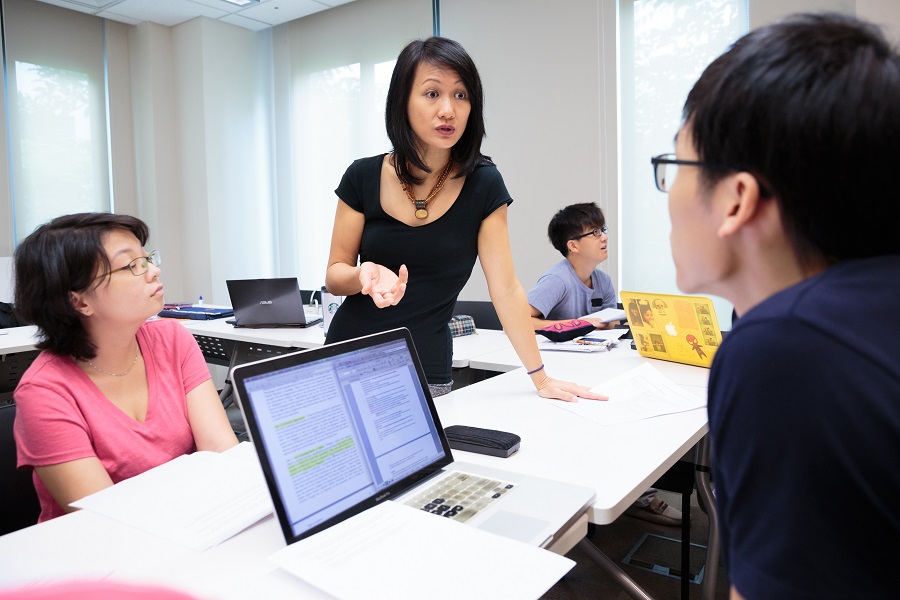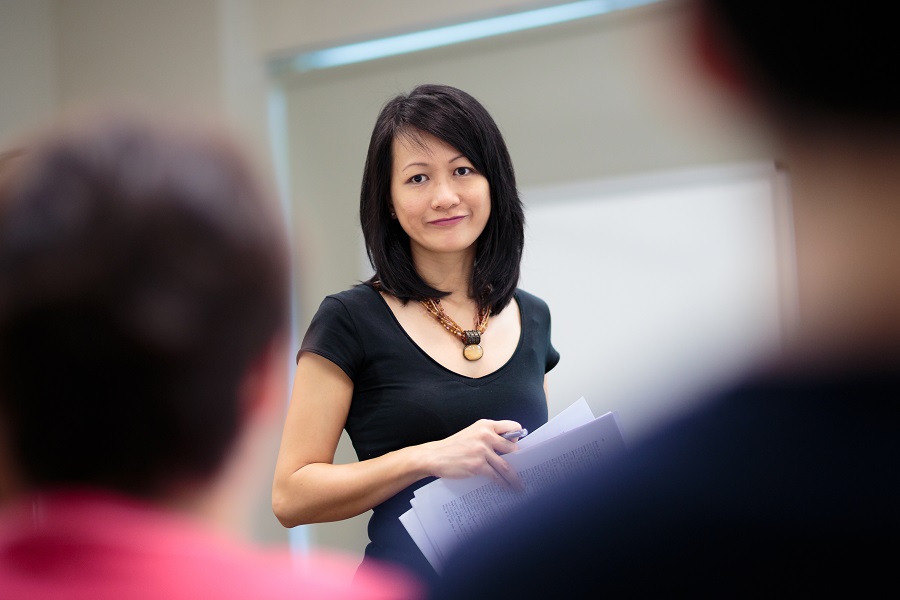Spotlight on LKYSPP and USP Faculty Dr Carol Soon
By Tang Rei-En
Rei-En (Communications and New Media + USP, Year 3) is a student writer for Highlights
“Conviction" comes to Dr Carol Soon's mind when asked about the pursuit of one's interest and passion.”

Dr Carol Soon tells me that we should find that something — the spark — that drives and engages us intellectually and emotionally. For her, that dwells in the intersection and overlaps between new media and the way in which individuals utilise its affordances for political purposes. When speaking to Dr Soon, it is clear that this interest — and her conviction towards it — has fuelled her through her years in academia.
After graduating from Nanyang Technological University with an honours degree from the School of Communications, she spent several years working in the corporate sector, doing marketing communications for profit and non-profit organisations.
However, the burgeoning rise of new media in everyday society proved to be irresistible and she found herself back in academia, exploring the ways in which new media has affected the political sphere. Her PhD dissertation examined how regular citizens were using technology and new media to advocate for change, and attempted to uncover the motivations for their participation in activism.
“I needed to do something that not just interests me, but challenges me to get out of my comfort zone and stimulates new ways of thinking about the world we live in,” Dr Soon explains, of her decision to return to research. “I really enjoyed the idea of doing research in something that piques my curiosity. I thought it would be intellectually enriching for me to find out more and to study the phenomena.”
With its breadth and its scope, communications research has proved to be a gripping one. It is the diversity of voices and individuals which one finds online that most delights Dr Soon.
“Even as I study the online space now, I am constantly amazed by the variety of behaviours, opinions, motivations and uses which shape the online communication that I can observe as a researcher. It reminds me of the diversity of human kind,” she says. “It has definitely made me a more open person.”
Dr Soon teaches USE2308: New Media and Politics in USP. This module came about when she realised in 2010 that there was no module in NUS — be it in the Communications and New Media department or the Political Science department — which focused on the interplay between the two disciplines. She sought to address this gap with her USP class, which aims to engage students to critically think about the issues that arise out of the intersections between politics and new media. The module looks at how new media works to change the dynamics in the political sphere: be it for political parties; civil society members; or new non-state actors, such as bloggers.

Asked about her experience teaching in USP, Dr Soon says, “It has been a very enriching and rewarding experience. What I thought was really fascinating was working with students from different backgrounds, and different years of study.” She is glad for the smaller class size in USP which has allowed her to better understand each student, such that she can more effectively help them hone their skills and interest for the main research project in the course. A Writing Concentration Module, USE2308 has the students work on producing an entire research paper (broken over three smaller essay assignments) over a semester, in an area of interest that appeals to the individual student.

Dr Soon is also Research Fellow at the Institute of Policy Studies (IPS), which is part of the Lee Kuan Yew School of Public Policy. There, she is part of a research group which does policy-related research on arts, culture and media. They have recently completed a first-of-its-kind study on non-English (Chinese, Malay and Tamil language) blogs in Singapore, which has been published on the IPS website. “We found so much variation in the compositions of the bloggers, their interests and how they use the language,” relates Dr Soon, alluding to the rich diversity found in the online space which constantly intrigues her.
Seemingly inexhaustible, Dr Soon is also working on numerous other projects — singling out two to elaborate on. One involves her teaming up with faculty members from the Communications and New Media department and Computing Science department to study how deliberative governance may function in the local context. The other aims to envision Singapore as a digital village. “What is it about the village spirit that technology can help bring back?” proposes Dr Soon, hopeful of the benefits of technology. “How can we then leverage on this to solve problems that we are facing today, and that we will be facing in the next five to ten years as a country?”
Talking to Dr Soon, one gets the sense that the field of communication research will never cease to fascinate and captivate her. “It’s something I think I would never be bored with,” says Dr Soon, about her interest in research — and that inspiring curiosity and desire to know more, question everything is truly something we should all embody in our everyday lives as well.


